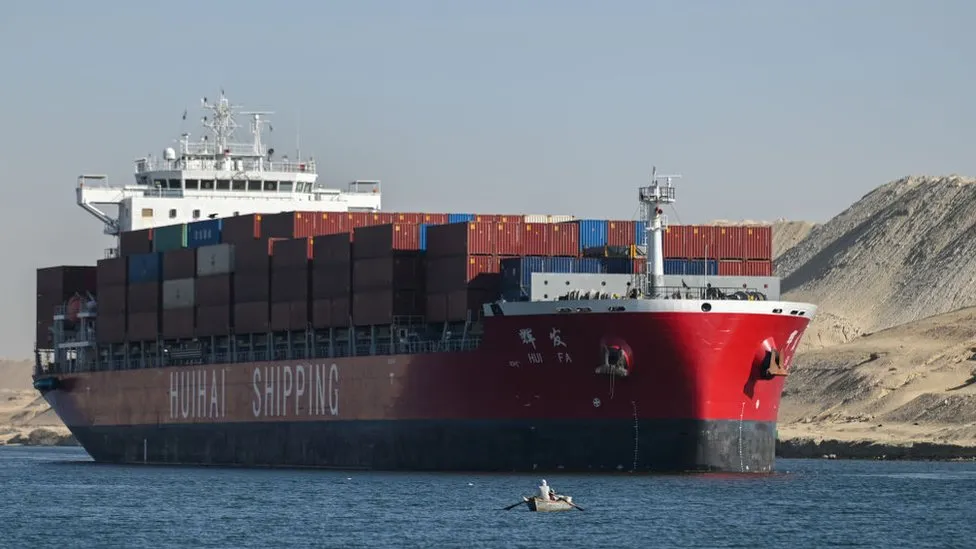Red Sea Attacks Result in Delays and Cost Challenges, Firms Say
Businesses in the UK are contending with heightened shipping costs and significant delays, up to four weeks, due to attacks by Houthi rebels in the Red Sea, as per a survey conducted by the British Chambers of Commerce (BCC). The survey revealed that over a third of the participating firms have been impacted by these disruptions, and this figure rises to more than half among exporters. The resulting challenges could increase prices across the UK economy as companies face shortages of goods, components, and cash flow problems.
Export-oriented businesses, retailers, wholesalers, and manufacturers are reportedly more susceptible to shipping challenges, as the BCC’s findings indicate. Rerouting shipments around Africa’s Cape of Good Hope is extending delivery times by three to four weeks, with some companies reporting a surge of over 300% in container hire costs.
The conflict in the Red Sea has been affecting businesses since before Christmas, prompting budgeting adjustments and notable container cost increases. William Bain, the BCC’s head of trade policy, acknowledged that there had been some spare capacity in the shipping-freight industry to manage difficulties. However, he warned that the mounting pressures and escalating costs cannot be absorbed indefinitely. He emphasized that, although the scale of price increases is not as high as during the pandemic, such increases are bound to impact prices sooner or later.
One specific case highlighted is Warings Furniture, which imports interior decor for pubs and restaurants. Due to higher container quotes, the firm has had to revise its budget and is grappling with delays. Some companies attempt to counteract cost increases by negotiating lower prices with the manufacturers they source.
The BCC suggests that additional government support for exporters may be necessary, including establishing an export council to foster trade. Given the decline in total goods exports in 2023 and weak global demand, there is a call for government assistance in the upcoming budget.
The rise in shipping rates followed Houthi attacks on commercial vessels in the Red Sea during the Israel-Hamas conflict in October. The Houthis targeted ships associated with Israel, the US, and the UK. Responding to these attacks, the US and the UK carried out air strikes on Houthi targets in Yemen. The Red Sea serves as a crucial sea route between Asia and Europe, and the rerouting of vessels is resulting in increased costs, delays, and consequences for various industries.
Due to the shipping disruptions, well-known tea brands like Tetley and Yorkshire Tea have also expressed concerns about supply chain tightness. The BCC surveyed over 1,000 predominantly small firms, shedding light on the challenges posed by the shipping difficulties in the Red Sea. This situation underscores the broader impact of geopolitical events on global supply chains and the potential repercussions for businesses and consumers alike.



















